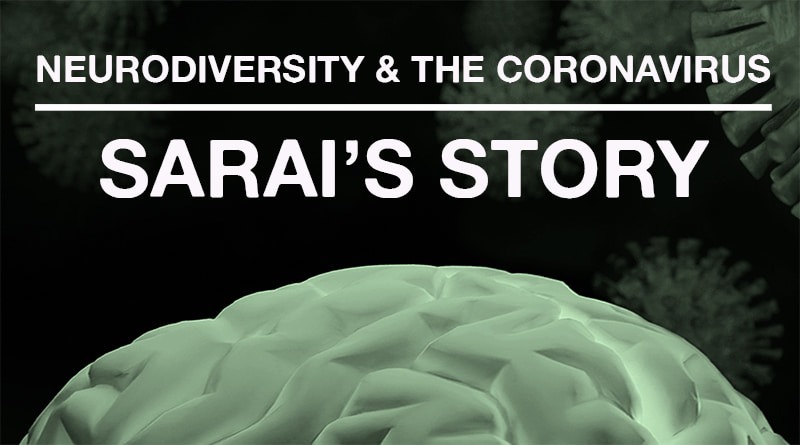
How Resilient Are YOU?
By Jackie M. Marquette Ph.D.
A woman named Fran shared a story with me at an autism conference. She told me about her close friend Jason, a 40 year old man with autism and how they enjoyed spending time together.
Fran spoke of Jason’s brilliance and how he successfully achieved several college degrees, one bachelor’s, and of two Master’s, one in chemistry. She smiled and simply expressed her appreciation to have Jason’s friendship. Then Fran shifted her conversation to describing the set backs Jason has had in the past and the failure to have the career he so deeply wanted.
After graduation, Jason was offered an internship with Company X. He struggled to keep up with the momentum of his coworkers, the communications, negotiations, and collaborations. Although Jason was capable of doing his job, he left the job because the demands were too stressful to effectively participate on projects with coworkers. Fran shared that for the past 10 years Jason had been working in retail on wage hour jobs, leaving behind the dream career he had wanted since childhood.
Jason and Fran’s friendship occurs within a church setting – attending bible study classes and group socials. She then spoke of Jason’s social problems. In one particular meeting, Jason struggled to sit still when a class extended ten minutes beyond the predictable time. She encouraged him to wait patiently until the meeting was over. Because he showed so much anxiety she then suggested he leave before he had a meltdown.
Another time she invited Jason to go with her and a group of friends to a restaurant. It was a warm summer evening and the group chose to dine outdoors on the patio. Everyone had such an enjoyable time talking and laughing that when the restaurant workers locked the doors and closed for the evening, Jason was ready to go. He expected everyone to leave too. She explained to Jason that they didn’t have to go because they were sitting outside of the restaurant. Jason’s anxiety increased. Fran then suggested to Jason that if really wanted to leave, it was alright. Jason left immediately.
I only know Jason through Fran’s story. Afterwards, I felt an appreciation for Jason’s incredible talents and yet, sad that Company X either didn’t know how to support Jason’s challenges and/or he may not have had the tools to negotiate for his own needs. Yet I believe Jason may have been able to keep his job with greater employer appreciation of his talents and deeper understanding about subtle supports that could minimize challenges. Had Jason been able to keep his job, his talents would have been unique contributions to Company X. See Interdependent Employment Model
Unfortunately Jason’s employment outcome parallels with many of my research participants.
Regardless of Jason’s inability to hold onto his career, I believe he had effectively faced adversity in getting 3 college degrees and showed resiliency in many ways. Resiliency is ‘the ability to overcome challenges of all kinds–trauma, tragedy, personal crises, plain ‘ole’ life problems–and bounce back stronger, wiser, and more personally powerful.’ See resiliency
It can also be valuable to reflect on past experiences to see the resiliency we once had and use it to meet today’s desires and goals for living. Fran’s story about Jason’s past experiences and their friendship inspired me to write this 7 question assessment.
I invite you to take this short quiz to reflect upon the ways you have been resilient. Perhaps your own experiences can be a light to inspire and guide you now.
Find Your Resilience
1. Do you remember a time when you suffered a loss and wanted to give up on a goal? Yet you somehow got a new view, became honest with yourself and kept going? (answer even when you had a mentor or a support system there for you). _____ Yes ______ No
2. Do you recall a time you did not run away, but you faced a difficult situation in life (answer even when you had a mentor or a support system there for you). _____ Yes ______ No
3.Have you ever became inspired to take action because you felt responsible to someone else or other people? (answer even when you had a mentor or a support system there for you). _____ Yes ______ No
4. Do you remember a time when you took a step forward to act on your own behalf to get back on course in life. _____ Yes ______ No (answer even when you had a mentor or a support system there for you).
5. Do you recall looking at a situation from a unique perspective that was both different and creative in order to find a new solution or a way to accomplish something? _____ Yes ______ No (even when you had a mentor or a support system there for you).
6. Have you ever cried your heart out about something or someone and years later found that when you look back you can find humor in the situation or enjoy a good laugh with yourself? _____ Yes ______ No (even when you had a mentor or a support system there for you).
7. When setbacks in life occurred, have you found yourself saying ‘yes’ to doing what is right and true, because you had self-determination or a strong belief system about something? _____ Yes ______ No (even when you had a mentor or a support system there for you).
Calculate your answers.
If you answered yes to one to three of these questions you have:
shown some resilience in your past.
If you responded yes to four to six questions, you have:
strong resilient tendencies.
If you answered yes to all seven questions you are a:
‘resilient warrior’.
Now discover what kind of resilience you have shown.
If you answered yes to #1, when you suffered a loss and wanted to give up on your goal, you somehow got a new view and became honest with yourself. You have shown intuition or a deep understanding about yourself.
If you answered yes to #2, you remembered a time you did not run away, and you faced a difficult situation in life. You showed autonomy.
If you answered yes to #3, you became inspired to take action because you felt responsible to someone else or other people. You have shown autonomy while being connected to other people.
If you answered yes to #4, you remember a time you took a step forward to act on your own behalf. You showed resilience by taking action.
If you answered yes to #5, you recall looking at a situation from a unique perspective that was both different and creative, in order to find a new solution. You were resourceful to find a solution.
If you answered yes to #6, you may have had your heart broken about someone or something but found years later you can look back on the situation and laugh about it with yourself. You showed resilience with humor.
If you answered yes to #7, you recall a time you said ‘yes’ to doing what was right and true. You have a strong belief system.
Now consider your answers to the quiz. Acknowledge all your past successes through the looking through your resiliency glasses.
Explore ways today you can be resilient to your desires and goals. Achieving outcomes you want is being a success, this is true. Yet, responding to life’s obstacles no matter how the outcome turns out is also being a success.
Being resilient is being a success in life.
I wish you much success.
-Jackie M. Marquette Ph.D.
Jackie Marquette Ph.D. is dedicated to bringing innovative and unique solution based career tools and leadership to organizations and individuals with ASD and diverse challenges. Dr. Jackie provides consultation, writes, and conducts her own research. She has a son with autism in his 30s who is an accomplished award winning artist. Visit:
www.marquettestrengthsindex.com




